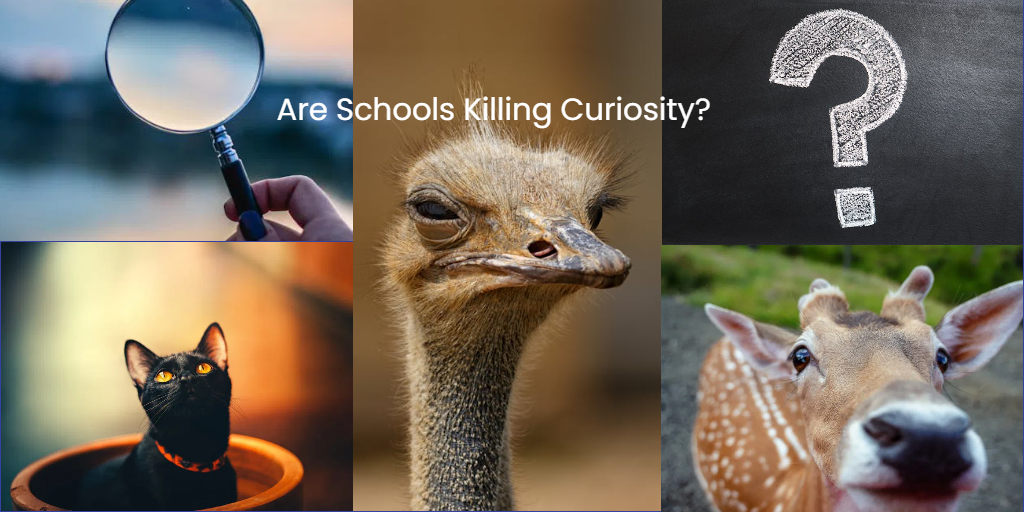
The natural curiosity of a child is one of their most powerful assets. From the moment they can grasp objects, children begin to explore the world around them with an insatiable desire to learn. They ask endless questions, seeking to understand how things work, why things happen, and what lies beyond the boundaries of their immediate experience. However, once they enter formal schooling, this innate curiosity often begins to dwindle. The structured, test-driven environment of schools, which prioritises conformity and standardisation, can stifle the natural love of learning that children are born with.
Schools, with their rigid schedules, predetermined curriculums, and focus on measurable outcomes, rarely leave room for the spontaneous exploration that fosters deep understanding and creative thinking. Rather than encouraging children to delve into subjects that ignite their interest, the traditional education system often moves them quickly from one topic to another, leaving little time for genuine discovery. This approach can give the impression that learning is simply about memorising facts and regurgitating information, rather than engaging with the world in a meaningful way.
For many children, school becomes a place where learning feels more like a chore than a joyful pursuit. The pressure to meet targets, pass exams, and follow strict lesson plans leaves little room for curiosity to flourish. As a result, children may stop asking questions, assuming that there’s only one right answer that’s already been decided for them. This environment can create a passive approach to education, where children wait to be told what to think, rather than developing the critical thinking skills and inquisitiveness that are essential for lifelong learning.
In contrast, home education provides a unique opportunity to reclaim your child’s love for learning. Without the constraints of a traditional classroom, home education allows for a more personalised and flexible approach to education, where curiosity is not only encouraged but becomes the driving force behind the learning process. Children are free to explore topics that fascinate them, spend time pursuing their passions, and dive deeply into subjects that might only receive a brief mention in school.
In a home education environment, learning can be shaped around a child’s natural interests, allowing for a more organic and engaging educational experience. Whether it’s through hands-on projects, outdoor exploration, or following a child’s question through multiple layers of discovery, home education can create a space where curiosity thrives. Rather than adhering to a one-size-fits-all curriculum, parents can tailor their approach to match the pace and preferences of their child, making learning more enjoyable and effective.
Moreover, home education fosters an environment where children can take ownership of their learning. Instead of being passive recipients of information, they become active participants in their education, asking questions, seeking out answers, and developing the self-motivation that comes with truly wanting to learn. This sense of autonomy is key to rekindling a child’s love for learning, as it empowers them to follow their curiosity wherever it may lead, without the fear of failure or the need to conform to a set standard.
Home education also allows for the kind of experiential learning that is often missing from traditional schooling. By integrating real-world experiences into the learning process, children can see the relevance of what they are learning and develop a deeper understanding of the subjects they are exploring. Whether it’s a nature walk to study biology, a trip to a museum to learn about history, or cooking a meal to explore chemistry and mathematics, home education makes learning an active, engaging, and meaningful part of everyday life.
In a world where creativity and innovation are becoming increasingly valuable, fostering curiosity is more important than ever. Home education offers a pathway to nurturing this curiosity, allowing children to develop the critical thinking, problem-solving, and creative skills that will serve them throughout their lives. By breaking free from the rigid structure of traditional schooling, parents can help their children rediscover the joy of exploration and the excitement of learning.
In reclaiming your child’s love for learning, you open the door to a world where education is not something to be endured but something to be embraced with enthusiasm and wonder. It’s a world where questions are celebrated, where every discovery leads to new possibilities, and where the pursuit of knowledge is a lifelong adventure. In this world, curiosity isn’t killed by schooling – it’s the foundation upon which a fulfilling and inspiring education is built.


